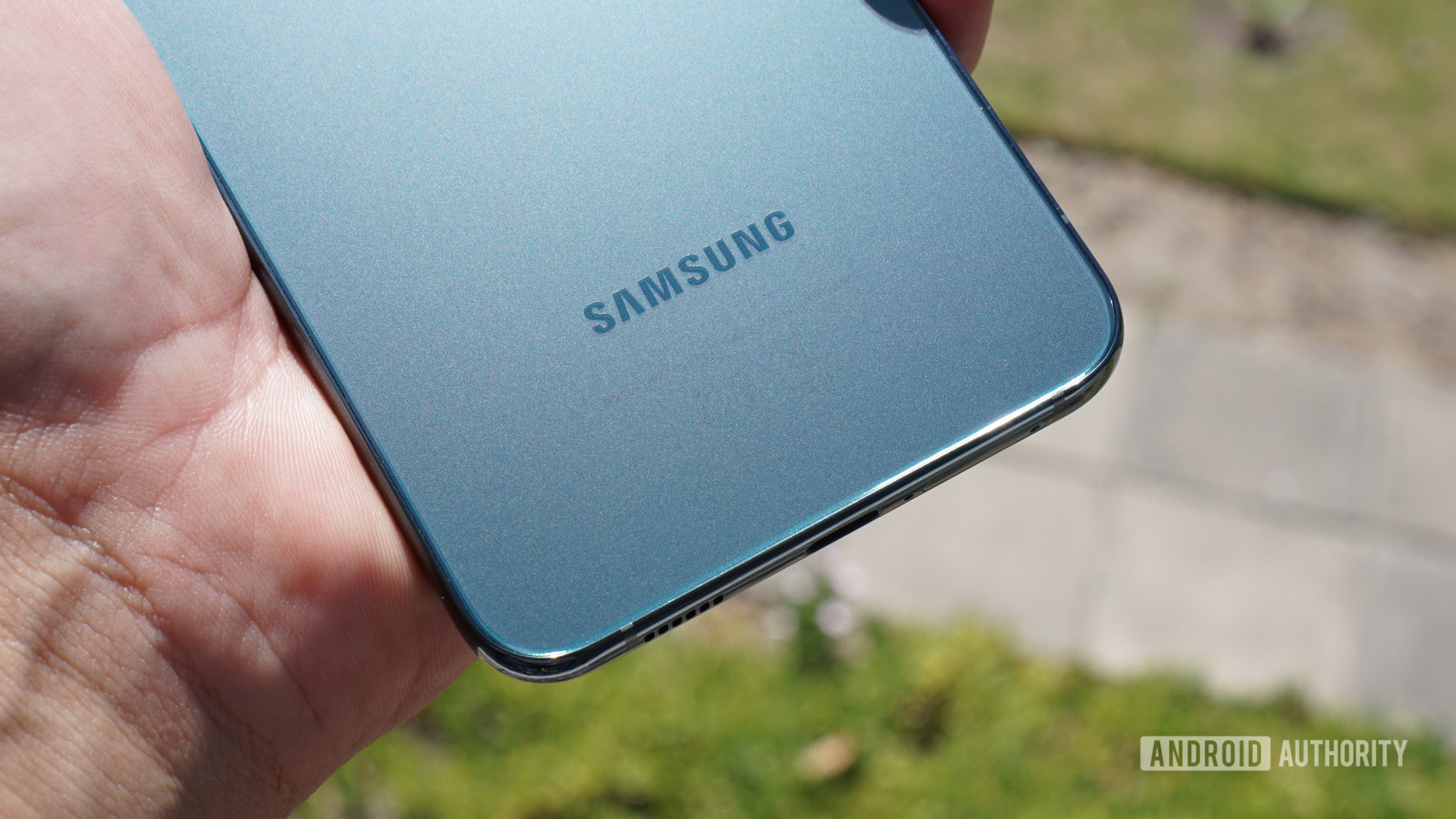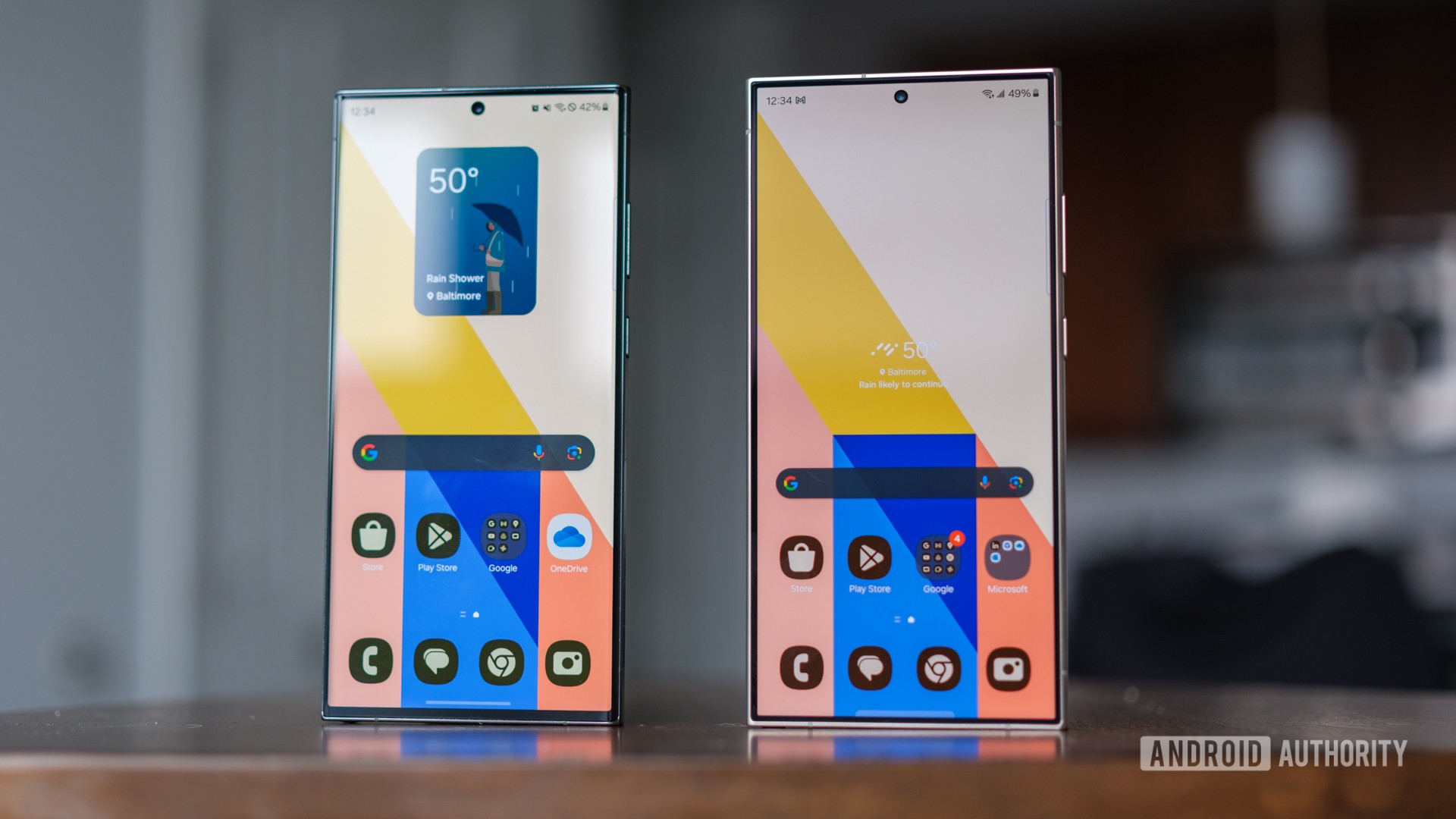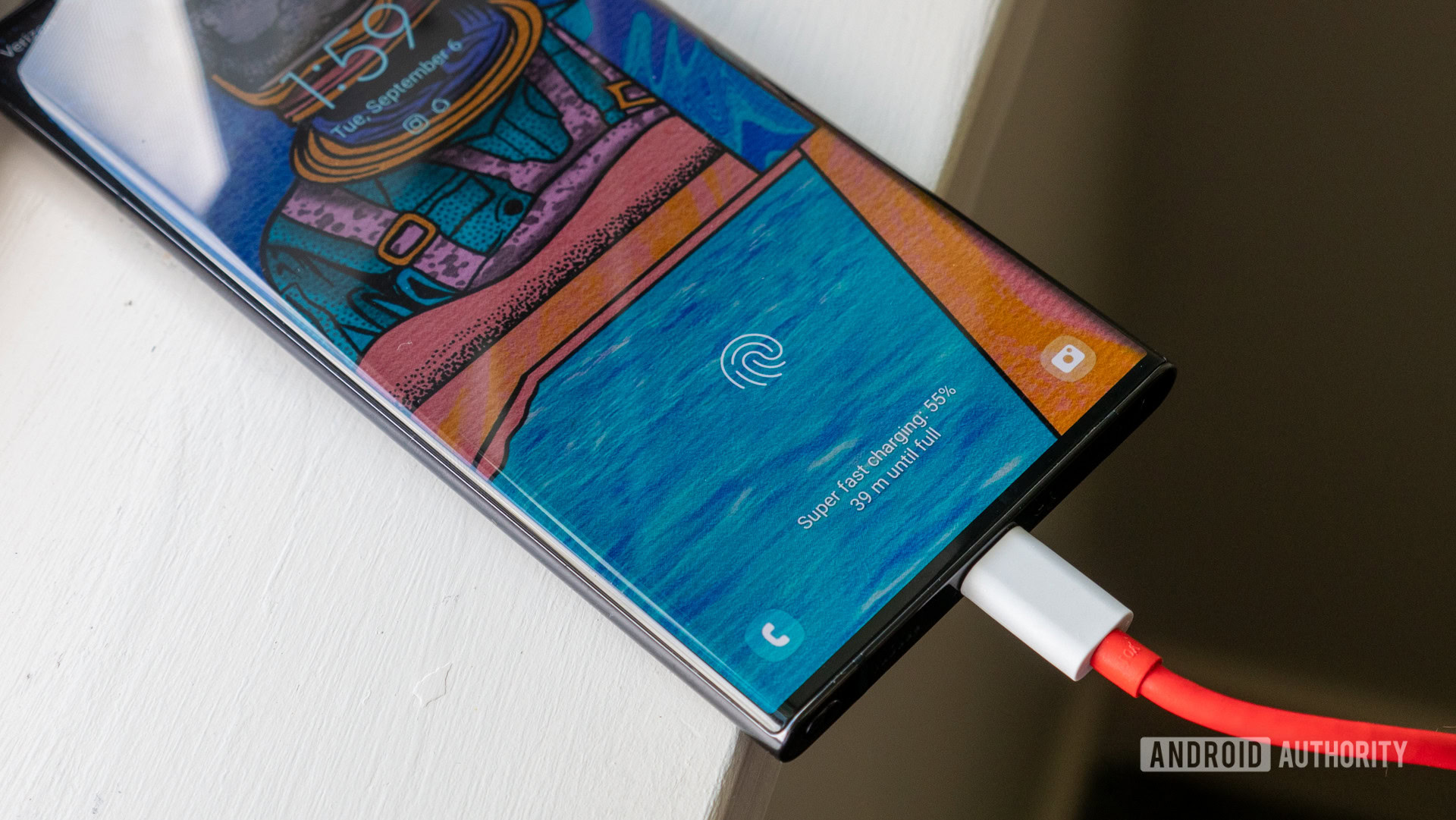Affiliate links on Android Authority may earn us a commission. Learn more.
Is your Samsung phone overheating? Here's what you can do

Complaints about overheating phones from Samsung and other Android brands have become increasingly common. You may often notice that the phone becomes uncomfortably warm even when it’s not performing processor-intensive tasks. Overheating doesn’t just affect your smartphone’s performance as it can also cause premature battery degradation and other hardware issues down the line. If you’re facing overheating problems on your Samsung phone, here’s what you can do to fix them.
QUICK ANSWER
To stop your Samsung phone from overheating, check Settings > Battery for any rogue apps running continuously in the background. Also check your charger and cables for hardware issues if your phone overheats while charging, and don't use it while it's plugged in. There are plenty of software features you can enable and disable on Samsung phones to help with the overheating problem as well.
JUMP TO KEY SECTIONS
Why is my Samsung phone overheating?

There are many reasons why your Samsung phone might be overheating. First, there’s expected behavior. Any processor-intensive tasks will cause the phone to overheat a bit. You’ll see the device run warm when setting up a new phone while it restores apps and data in the background. It will also get warm while gaming or if you use the camera for a long time.
Fast charging could also be a culprit. While it’s great to charge your phone in less than an hour fully, the phone might get warm while charging. If you’re doing any intensive task while your phone charges, the heat dissipation may not remain as effective as it is dealing with two heat-generating factors simultaneously. Wireless charging also loses a lot of efficiency in the form of heat, which has the knock-on effect of reducing battery health in the long term.
Your phone will get warm in certain usage scenarios, so don't panic.
And, of course, environmental factors play a part. If the ambient temperature around you is high, your phone will run warmer than usual, especially if it’s in a thick, rugged case. But remember that even if your device overheats when expected, it shouldn’t get uncomfortably warm to the point where you can’t use it anymore.
The bigger problem occurs when your Samsung phone overheats when it shouldn’t. Users have issues with the phone getting warm even when no apps are running actively or in the background. Some Samsung phones might also throttle performance to control overheating, making for a slow and sluggish experience. Rogue apps and software bugs usually cause overheating issues that are harder to diagnose.
How to fix Samsung phone overheating problems
You can do a few things when your Samsung phone is overheating. There are also a few steps to remember to avoid these problems in the future.
1. Close active and background apps
The first thing to do if your phone is overheating is to stop what you’re doing. Close the app you are using, and make sure that you close all background apps as well. Swipe up from the bottom of the display to open the Recent Apps screen and swipe away the apps running in the background to close them.
If you can pinpoint a particular app that might be causing overheating issues while running in the background, you can disable background data usage. Go to Settings > Connections > Data Usage > Wi-Fi (or mobile) data usage. Select the app and toggle off Allow background data usage. This will stop the app from automatically refreshing in the background.
You can go one step further to stop unused apps from running in the background. Go to Settings > Battery and device care > Battery > Background usage limits and toggle on Put unused apps to sleep. To completely stop particular apps from running in the background, tap Deep sleeping apps and the + icon at the top right corner to add apps to the list.
2. Change battery settings to reduce overheating
Some Samsung phones have fast charging capabilities that can cause them to overheat while charging. Avoid using the phone while it’s charging, and don’t keep it plugged in overnight or after it is fully charged. Overheating while charging might also be a hardware fault. Check for frayed or torn charging cables and try the charger with other devices to see if it’s causing problems.
You can also reduce the charging speed to stop the phone from overheating. Go to Settings > Battery and device care > Battery > More battery settings and toggle off Fast charging, Super fast charging, and Fast wireless charging. This will slow the charging speed drastically, but the phone shouldn’t overheat. You can try enabling Fast charging since that might not cause overheating problems, and the phone will charge relatively quickly.
In the same menu, tap Processing speed and change it to Optimized. While the High and Maximum settings help push the phone during processor-intensive tasks, these will cause overheating and rapid battery drain.
If you notice overheating when you are wirelessly charging your phone, you should consider adopting a wired charger instead. Wirelessly charging your phone will generate latent heat as the process loses its efficiency in the form of heat. Samsung’s official wireless chargers come with a cooling fan to reduce this issue, but often, that alone will not be enough. So expect the heat to be a byproduct of wireless charging, and switch to wired charging.
3. See if software bugs are causing the problem
If your Samsung phone is overheating for no reason, it might be a rogue app or software bug causing the problem. Boot the phone into Safe Mode and see if the issue persists. To enable Safe Mode, press and hold the power button, long press the Power off icon, and tap Safe Mode. If the problem goes away, a rogue app is causing it. Removing any recently installed or updated apps should fix the issue. The only option is to wait for an app or software update for a permanent fix.
You should also check the battery section within the Settings app to see if any app has consumed large amounts of battery since the last full charge. That will point you towards the culprit.
4. Check and remove app permissions
App permissions might cause overheating issues. A bug might cause other apps to stay active or run in the background without your knowledge because it’s linked to another app. This common Pixel phone and Google Messages bug caused the phone to overheat because of the camera permission.
Go to Settings > Apps, tap the three vertical dots icon at the top right corner, and open Permission Manager. Tap on one of the app permissions (camera, location, and microphone are good choices) to see a list of apps that have access. Select an app and choose Don’t allow to disable the app permission. Try this with other apps to see if the problem persists after disabling permissions for a specific app.
5. Other tips to stop your Samsung phone from overheating

- Don’t keep your phone in a locked car on a hot day, and keep it away from direct sunlight if possible.
- Higher brightness settings might cause the phone to overheat. Turn off Adaptive Brightness and use the brightness slider in the Quick Settings menu to reduce it.
- Remove the phone case when the device is overheating. Some thick cases don’t offer enough ventilation to let the heat disperse naturally.
- In extreme cases, malicious apps and malware might run processes in the background, causing the phone to overheat. Check out our guide for scanning and removing viruses and malware on Android to ensure your device is safe.
- Make sure that you download and install software updates when available. These will usually come with bug fixes to help solve heating issues and improve performance.
- If nothing works, it’s likely a hardware problem. Your only option is to contact Samsung to get a replacement.
- Don’t put your phone in the fridge or freezer or run it under cold water, even if it is waterproof. But you can try holding it up to a fan or near air conditioning.
Hopefully, doing these steps may help you cool down your device. If you have an Android phone from another manufacturer and you’re facing issues, you can look at these common Android OS problems and their solutions.
FAQs
Your Samsung phone may be getting hot because of a lot of reasons. It could be because of high-intensity tasks by the processor, fast charging, because of faulty charger or cable, because of high ambient temperatures, or other reasons.
You should first stop using the phone, remove the case, and remove it from fast charging. Leave it like this for at least five minutes, and your phone should begin to cool down.
Excess heat does accelerate the rate of battery degradation, and hence, it is considered bad for your battery in the long term.